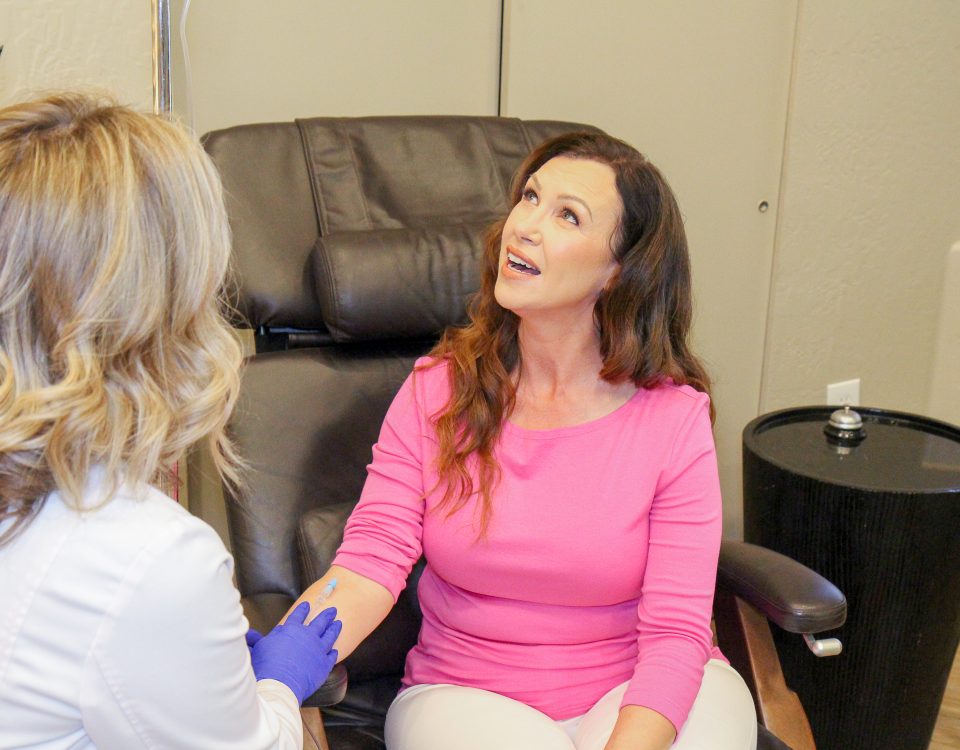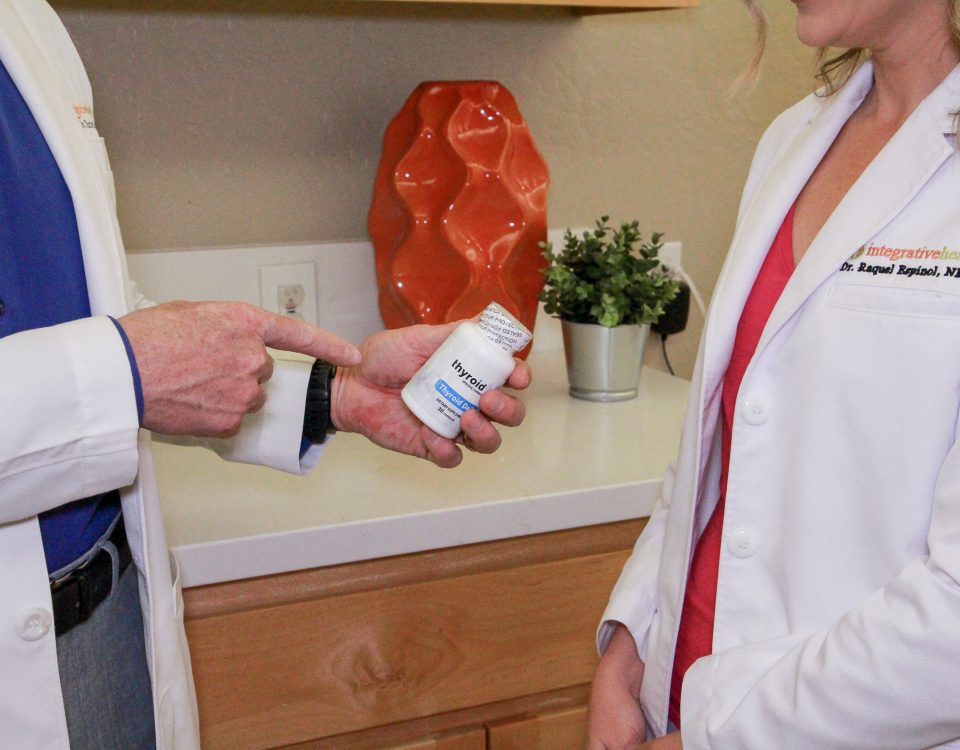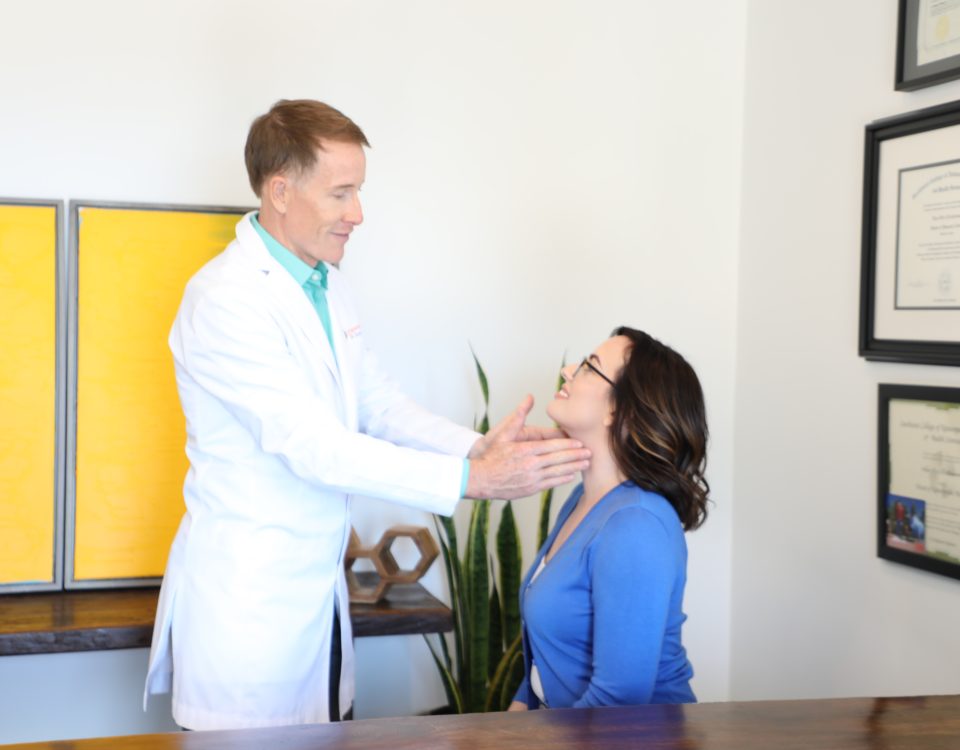Considering the vast amount of supplements available, it is easy to get overwhelmed. When it comes to which supplements for Hashimoto’s thyroiditis and the supplements not to take with Hashimoto’s, let’s consider this strategy: keep it focused and keep it simple.

Hyperparathyroidism: Hidden Causes that Could be the Case for Your Anxiety, IBS or Fatigue
May 6, 2019
Can Thyroid Cancer Be Treated?
May 13, 2019
Hyperparathyroidism: Hidden Causes that Could be the Case for Your Anxiety, IBS or Fatigue
May 6, 2019
Can Thyroid Cancer Be Treated?
May 13, 2019Home > Hormone Reset > Update – Supplements To Take For Hashimoto’s
Update – Supplements To Take For Hashimoto’s


Product Recommendation: With the Ultimate Hashimoto’s Bundle, we have your thyroid needs covered with savings galore. This bundle includes 1 Daily Reset Pack(60 packets), 1 bottle of Thyro-Balance Nigella, 1 bottle of Inflame Reset, and one container of RS Complete. Click Here
What Do I Mean By That?
Well, with supplements to take for Hashimoto’s, you want to make sure you are getting what you need, and you aren’t getting what you don’t need.
Simple, right?
Some supplements will work against your body and set you back. Others are not bad, per se, but they aren’t the most important when it comes to treating Hashimoto’s.
Key Insight: Remember, your body metabolizes all supplements through the liver, so taking 20 – 30 a day may have little benefit to you (while being hard on your system).
Which supplements do you want to make sure you are getting? Here’s the comprehensive list of supplements to take for Hashimotos to help you get started:
Vitamin A
You want to get a good blend of what are known as carotenoids. Beta-carotene is the carotenoid you hear about most. Your body makes beta-carotene into active vitamin A.
In order to get a good blend of carotenoids, look for whole foods and versions of vitamin A that contain them.
I love palm fruit, as it has a nice spectrum of carotenoids and is very bioavailable. This means it’s easy for the body to convert and activate.
Vitamin C
When it comes to vitamin C and Hashimoto’s, I recommend 500 – 1,000 milligrams per day and not much more than that.
There is a lot of data proving antioxidants are important, but if you have too much, you end up robbing your body’s own antioxidants (like superoxide dismutase or glutathione).
Vitamin D
I prefer the capsule version of vitamin D. This is because it’s typically easier to track how much I’m getting. Very few people reach a good blood level of Vitamin D with less than 10,000 units per day. Make sure you’re taking enough, and that you’re taking it with food.
When considering vitamin D supplementation, it is important to realize that this vitamin allows your body to absorb calcium. This is a good thing if you’re getting the right type of calcium.
It’s a bad thing if it isn’t the right type, or if your body isn’t using it well. This will create plaque in the blood vessels, leading to:
- Joint calcification
- Kidney stones
- Gallstones
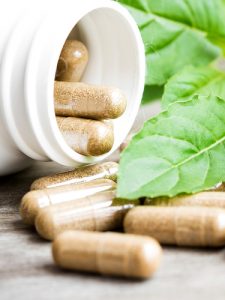
The important types of calcium are those similar to the calcium found in plants. My favorite form is dicalcium malate, as it won’t cause calcification or gum up your arteries (it’s also free of lead).
A lot of calcium is derived from oyster shells or bones (like the microcrystalline hydroxyapatite). There is concern about lead contamination with these types (because bone tissue always contains lead, there is also concern regarding bone broths, collagen, and gelatin).
It is good to take plant-based magnesium, too. When it comes to calcium-magnesium ratios, many of the high-dosage guidelines were based on types not easily absorbed.
I’m a fan of a few hundred milligrams (or even slightly less), per day, and in close-to-equal ratios. When you’re taking forms that are well-absorbed and free of lead, you do not end up needing much.
B-Vitamins
The B-vitamins are all critically important. Let’s look at them individually:
Folic Acid
Avoid all synthetic folic acid. This is important for one reason: Those with thyroid disease have a gene defect that causes folic acid to be poison, raising the risk for colorectal cancer.
Instead, look for methylfolate as your folate source. You need a milligram per day, which is 1,000 micrograms. This helps your body with its methylation pathways.
Generally, you do not want to take folic acid. Folic acid is essentially poison for a big percentage of people – upwards of half the population, and there are not clear ways to know which half you are in.
The data is strong that folic acid raises the risk of colorectal cancer. The rates of that disease have been climbing ever since we started fortifying our foods with folic acid.
So, you really need something like folate in your diet, get them from:
- Leafy greens
- Beans
- Legumes
- Nuts and seeds
B12
The preferred form of B12 is methyl B12, which is well-absorbed orally.
Biotin
Biotin is critical for your hair, skin and nail health. You want to take 100 micrograms per day.
If you take much more than this, it actually blocks the body’s usage of it. Many people take mega doses, thinking it will help their hair, and it simply does not.
B6
Both pyridoxine hydrochloride and pyridoxal 5-phosphate are good forms of B6.
Thiamine
There is current data showing thiamine is beneficial for both the antibodies of Hashimoto’s and hormone conversion.
B5 (Pantothenic Acid or Pantothenate)
This B-vitamin benefits your cortisol levels and cortisol conversion. It’s good to have a few milligrams per day.
Vitamin K
The best form of vitamin K is vitamin K2. Most research has been done on a form called MK-7. It’s like the vitamin K we make in our intestinal tract.
Vitamin K2 allows your body to direct calcium to the bones and away from the blood vessels. It also plays an important role in your blood’s ability to clot properly.
Trace Minerals
Trace minerals and ultra-trace minerals are extremely important. When it comes to thyroid disease, selenium is the big hitter.
Selenium is difficult to absorb and is still being debated as to how well it enters the bloodstream in supplemental form.
The most data is available regarding selenium glycinate complexes (selenium bound with a carrier protein, called glycine). This form is easily absorbed, non-toxic and effective.
Also, consider a few of the more exotic trace minerals: vanadium, molybdenum, boron, and manganese. These are all critical for building and utilizing thyroid hormones.
Bioflavonoids
There are two important bioflavonoids I recommend: hesperetin and quercetin. These do well in strengthening your connective tissues. Varicose veins, hemorrhoids or easy bruising are all related to the strength of connective tissue.
So, take a few milligrams of these two bioflavonoids on a regular basis to help round out your supplementation.
Essential Fats
EPA and DHA are the critical essential fats to control inflammation, keep the brain functioning well and help repair joints and cartilage.
Which Supplements Should You Avoid?
Honestly, all the rest. I do not suggest taking anything extra unless there are specific reasons and a short-term plan in mind.
A major supplement to be sure to avoid is iodine. With thyroid disease, you are getting a lot of iodine in your treatment. Taking additional iodine will actually block thyroid function.
You may have heard about the tragic Fukushima nuclear disaster in Japan. People were told to take potassium iodide. Why? Because high doses of iodine shut off the thyroid, protecting it from the radioactive iodine.
This can be useful in the event of such a disaster, but you certainly don’t want to shut off your thyroid on a daily basis! This is why it’s best to avoid all extra iodine.
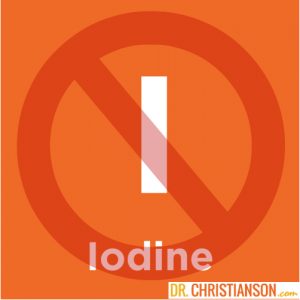
Reach Your Ideal Supplementation Today
With these tips on what supplements to take for Hashimotos in mind and in hand, you can treat your Hashimoto’s with clarity. Keep your regimen focused and simple, and you’ll be on your way to optimal thyroid health!

P.S. Whenever you are ready, here is how I can help you now:
1. Schedule a Thyroid Second Opinion with me, Dr. C, Click Here for Details
2. Need a Personalized Supplement? Check out My Thyroid Specific Formulations
3. Download and use my Favorite Recipes Cookbook Here
4. Check out my podcast Medical Myths, Legends, and Fairytales Here
Dr. Alan Glen Christianson (Dr. C) is a Naturopathic Endocrinologist and the author of The NY Times bestselling Adrenal Reset Diet, The Metabolism Reset Diet and The Thyroid Reset Diet.
Dr. C’s gift for figuring out what really works has helped hundreds of thousands of people reverse thyroid disease, lose weight, diabetes, and regain energy. Learn more about the surprising story that started his quest.



